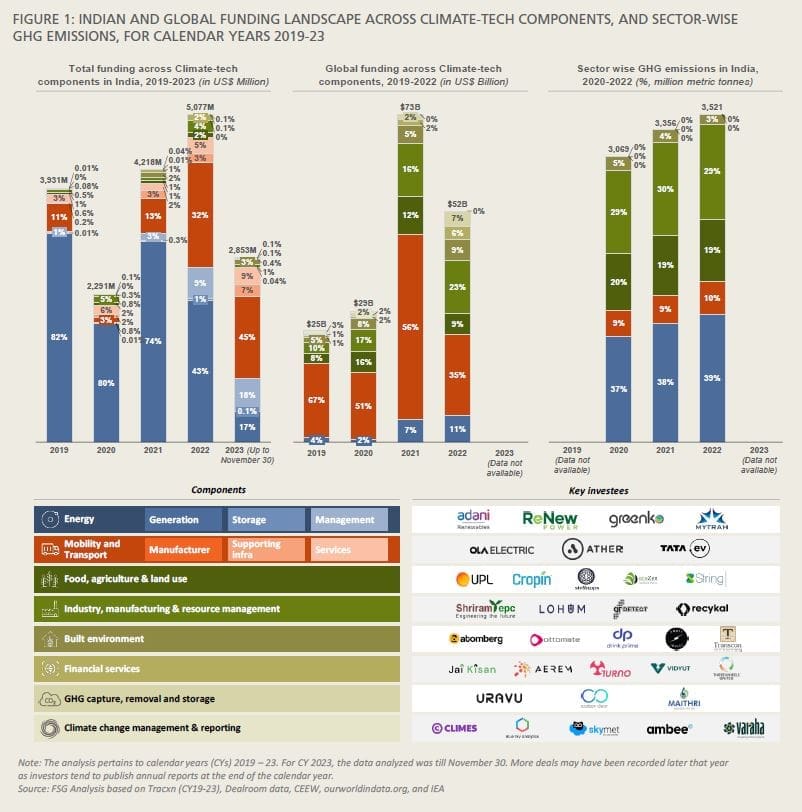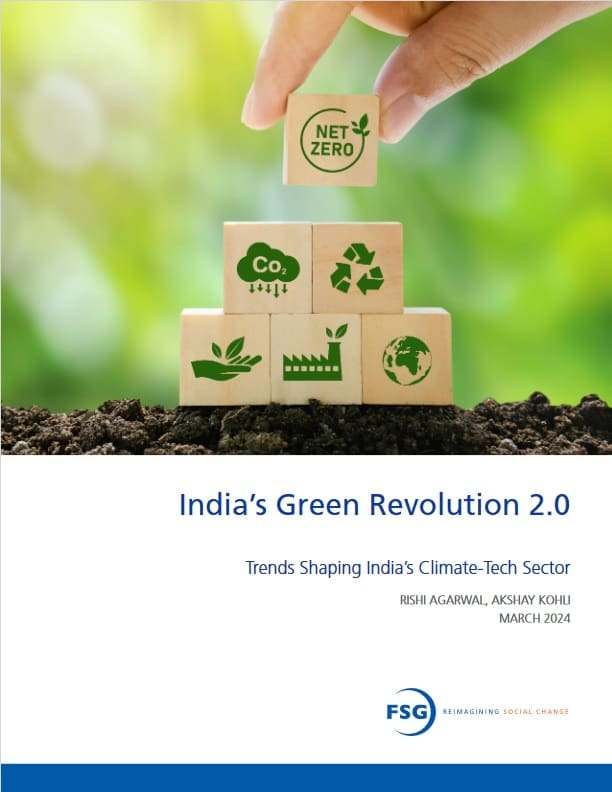As India grapples with the challenges associated with climate change, its climate-tech sector is playing a critical role in shaping a more sustainable and resilient future for the Indian economy. Investments supporting the development and deployment of innovative climate technologies are helping India transition to cleaner energy sources and implement sustainable practices in various other sectors to meet its climate commitments.
The climate-tech sector offers solutions to meet India’s growing energy needs while prioritizing emissions reduction. Meanwhile, the advent of smart mobility solutions and the electrification of passenger mobility and last-mile delivery are driving sustainability in the mobility and transport sector. Climate technologies are also curbing emissions from agriculture, food, and land use by promoting sustainable practices and enhancing resource efficiency and transparency. They are greening industry, manufacturing, and resource management with eco-friendly alternatives to conventional raw materials. Advancements in automation and inter-device connectivity, energy-efficient design, and structural alternatives are reducing the carbon footprint of the built environment. While specialized financial services are supporting climate action, solutions for greenhouse gas (GHG) capture, removal, and storage are critical to climate change mitigation and adaptation efforts. Additionally, technologies enabling GHG emissions monitoring and reporting aid in climate resilience and risk management.
In this report, we track the trajectory of investments in India’s climate-tech sector in recent years, analyzing funding stock and flows across the sub-sectors in climate-tech. Exploring emerging trends and potential business models in the sector, the report also offers insight into the future outlook for each sub-sector and delves into the implications for key stakeholders such as start-ups, legacy companies, government, and investors.
While the general trajectory of the climate-tech sector shows an upward trend, there are distinct variations within specific sub-sectors, which are explored in greater detail in the paper (see Figure 1).

Top Takeaways
- India’s climate-tech sector has demonstrated resilience, registering an overall funding increase of 29% from 2019 to 2022. This growth culminated in a record total investment exceeding US$5 billion in 2022, a milestone signifying a robust vote of confidence in the sector’s potential for impact.
- Following significant growth in recent years, the funding momentum waned by the end of November 2023. The sector attracted US$ 2,853 million till November 30, 2023, representing only 57% of the total investment garnered in 2022.
- Investment activity has been driven primarily by significant funding in the ‘Energy’ and ‘Mobility and Transport’ sub-sectors, which collectively represent over 94% of the total climate-tech investments in India from 2019 till the end of November 2023.
- To limit global warming to 1.5◦C, investors should correct the dissonance between the emissions contribution and the amount of climate-tech investments in individual sub-sectors by realigning their investment focus.

